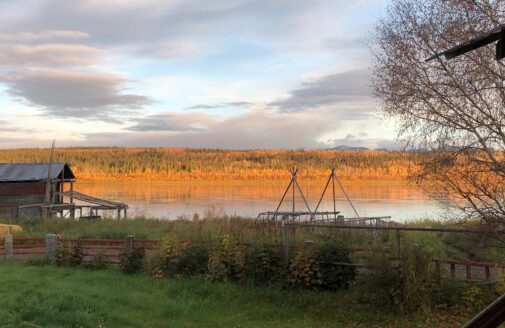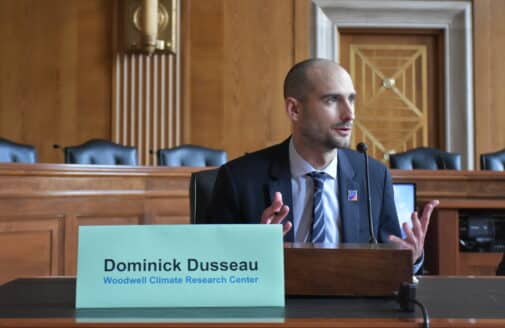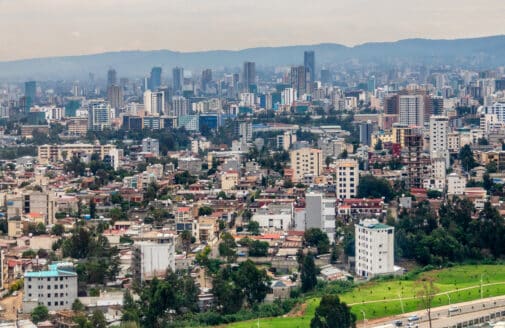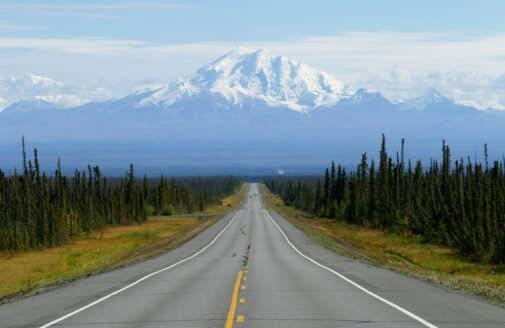Woodwell convenes three panels to share perspectives on climate risk
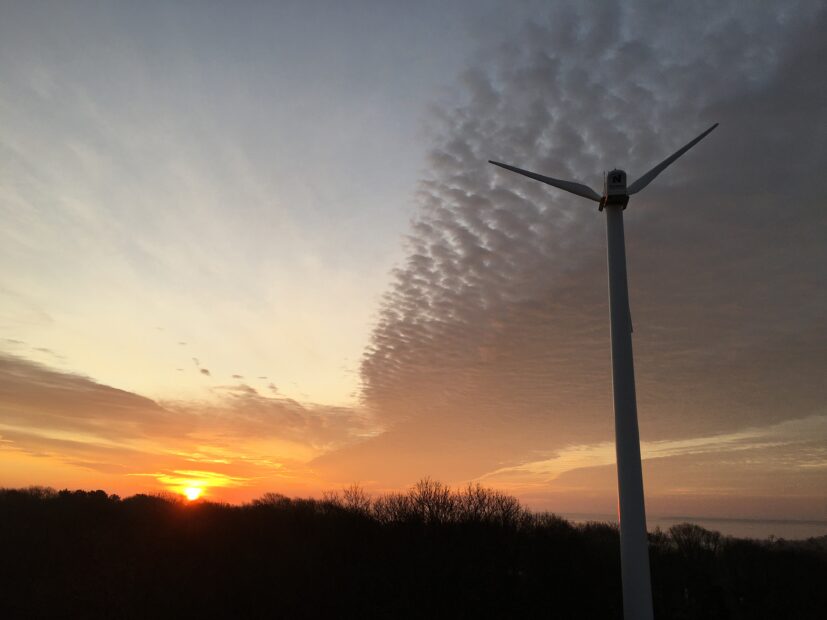
Wind turbine at Woodwell Climate Research Center.
photo by Fred Palmer
This week, Woodwell hosted the second of three virtual events in conjunction with the Massachusetts Office of the Attorney General and NYU State Energy and Environment Impact Center. The Seeing the Dangers Ahead series convenes climate, finance, and policy experts for discussions about how regulators and advocates can better understand the physical risks of climate change, and use that knowledge to propel decision-making.
The first event “Beyond the IPCC: Understanding and Harnessing the Latest Climate Physical Risk Data and Tools” delved into the practicalities of climate risk assessments—who is generating them, how we generate them, and what cutting-edge tools can help refine our calculations.
“We’re seeing the impacts of the climate emergency every day in our communities with high tides swamping our waterfront, extreme storms damaging our infrastructure, and heat waves killing our residents–especially people of color and those in low-income communities,” said Massachusetts Attorney General Maura Healy, who provided a keynote address to kick off the first event of the series earlier this month. “We must act now, and need the best science and analysis to do so, which is why my office is proud to partner with NYU Law School’s State Energy and Environmental Impact Center and Woodwell Climate Research Center on this important series. Together, we are committed to putting what we learn into action, to help us protect people, our communities, and our future.”
Tuesday’s event, “Risky Business: How Regulators and Advocates Can Harness Physical and Financial Risk Data to Tackle the Climate Emergency,” focused on providing advocates and regulators with an understanding of the tools and data needed to assess climate risk and integrate it into decision making as the impacts of climate change hit communities across the nation and the world. Panelists discussed questions around the United States Securities and Exchanges Commission’s proposed ruling on corporate disclosure of climate risk.
“Because the United States is still catching up to the world and the market on this subject, getting this right is crucial,” said Robert Jackson, Professor of Law at New York University. “The nature of the American government is that you might not get more than one try at this, so I am certainly hopeful that the proposal the SEC comes out with will stimulate a robust discussion among panels like this one.”
The final upcoming event in the series, “Toward Equity and Resilience: Harnessing Climate Risk Information for Better Decisionmaking,” will be held March 1 at 1pm ET, and the conversation will focus on how climate risk information can enable vulnerable communities in developing greater preparedness and resilience. Factoring climate risk data into infrastructure and planning decisions can help ensure communities are able to adapt to a warmer world.
Speakers at that final event will include former congressman Joe Kennedy III, Heather McTeer Toney, VP of community engagement at the Environmental Defense Fund, Robin Bronen, executive director of the Alaska Institute for Justice, Joyce Coffee, founder and president of Climate Resilience Consulting, Jennifer Jurado, chief resilience officer for Broward County Florida and Effie Turnbull-Sanders, environmental justice commissioner for California Coastal Commission. The discussions will be moderated by Woodwell’s chief communications officer, Dr. Heather Goldstone.




